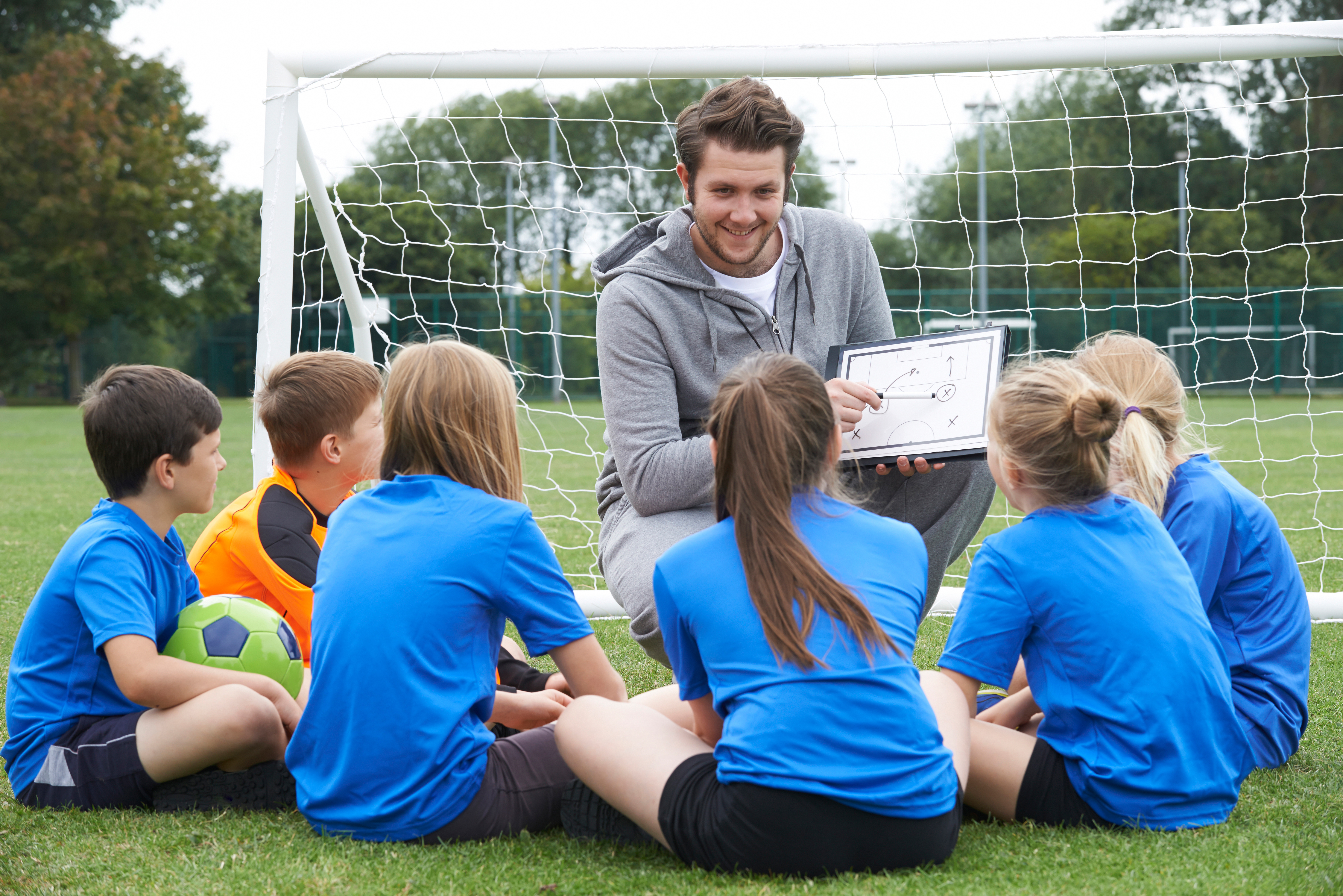Eight Tips to Help You Become a Fantastic Kid’s Coach
For dad’s coaching your kid and their sports team can be beneficial in several ways:
- it allows you to spend time with your kid in a different setting,
- encourages a common interest,
- contributes to bonding,
- and it can be a fantastic way to develop yourself and your skills.
Managing a dozen 10 year olds on an athletic field is a walk in the park. Not! Here are eight tips to successfully coach your kid’s sports team and become a fantastic coach in the process.
1.Good Idea?
While you may think it’s a great idea to coach your kid’s team, your kid may not be in agreement. Suggest asking your kid to identify the good and not so good things if you were to become their coach.
If you’re confident you can work through the negative things then you should proceed. If you’re stepparent you may need to enlist the help of your spouse as your stepchild may not be forthcoming with reasons why you shouldn’t coach their team.
2. Arrival
Always show up to practice at least an half hour early. You should be properly dressed and prepared for practice.
Teach your players being on time is arriving a few minutes early. Happily greet each of your players when they arrive.
Say their name with a smile. Affirmingly shake their hand or place a hand on their shoulder.
This helps in building the kid’s self-esteem and value to the team. Players should come with a filled water bottle and be appropriately and neatly dressed for the sport.
This includes correctly wearing the appropriate safety gear, i.e., shin guards, mouth guards, athletic cup, etc. for the particular sport. When it’s time for you to blow the whistle, everyone should be ready to begin.
3. Safety
When you first arrive take a walk around the practice field, carefully scanning for any safety hazards. Ensure items like goals and bases are properly secured.
If you’re playing soccer make sure the net is free of holes. Make sure you know the rules of the sport well enough to ensure you and your players safety!
4. Setup
Once you have made sure the field is safe and operational, you can start putting out the equipment needed for that day’s practice. Preposition as much equipment as you can beforehand to allow an easy transition from one training activity to the next.
This way, you will not lose the time or attention of your players by setting up during the practice. Of course, it’s perfectly acceptable to adjust the equipment if you need to during the session.
5. Teamwork
There’s no “I” in team. Encourage teamwork by setting expectations for players to work together and have each other back.
For example, teach players to back each other up on the baseball field. Recognize and reinforce instances of teamwork by praising the kids involved.

Make sure everyone is treated the same especially your child. Treating everyone fair and equal should be the standard.
Your ability to practice this consistently will strengthen the respect your child and the other players will have for you. Also, avoid the other extreme by ignoring and giving your child less playing time to show you’re not playing favorites.
Nothing can lose your credibility as a coach faster with your players than by treating individuals differently. This should be the case for everything – from exercises to the clothes they wear.
There are a number of fantastic companies out there that design great sports uniforms. Uniform Store designs baseball uniforms for children and adults, allowing you to ensure the jerseys are the same and desirable.
6. Conduct
Each practice session needs to begin at the appointed time. Everyone should be present when you blow the whistle.
Make sure the sun isn’t shining in their faces to reduce player distraction. Present a quick outline of what you have in store for them and what skills they should learn by the end of practice.
Include side games that will help to build skills and keep them relaxed. Help your players understand it’s okay if they make mistakes – that’s why it’s called practice.
You can build their confidence and love of the game by allowing them some freedoms in practice. Expect drama from either the kids, the parents or from both just because you’re the coach. Handle these situations quickly with open and honest communication.
7. Write
Remember you’re dealing with children attention spans – short. You can refer to the card as needed to be certain you cover everything you planned on.
This is done by coaches around the world in all types of sports and at every level. There’s no reason you shouldn’t do it as well!
8. Praise
You’ll be giving coaching points to your players. To be most effective, use PIP.
These simple three sentences will let the player know what needs improvement while building up their confidence and self-esteem.
Something like: “That was a great shot. Remember to square your shoulders. Awesome progress!” Try to allow play to progress with minimal intervention, allowing the players to practice during their practice time rather than listen to boring lectures about what each person is doing wrong.
Remember it’s a game and it should be fun. Many kids drop sports after a few years because it became a chore and no longer fun. Joke with the kids, get to know them and develop a relationship with them. After a good practice reward them by getting or bringing ice cream or other treats. When you’re back at home with your child remember you are a parent and not a coach. Leave your coaching hat on the athletic field.
Click here to learn five tips to keep your children safe when playing sports.







